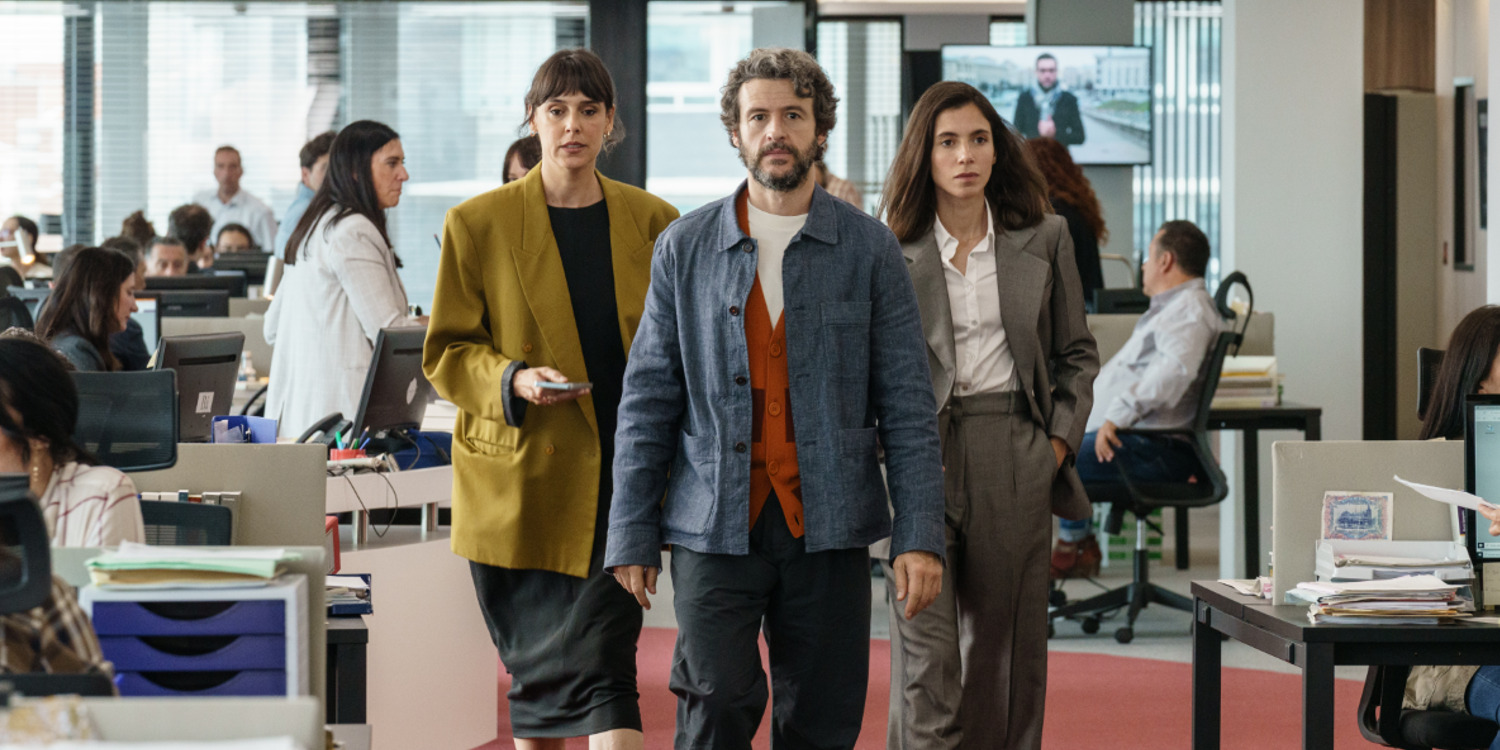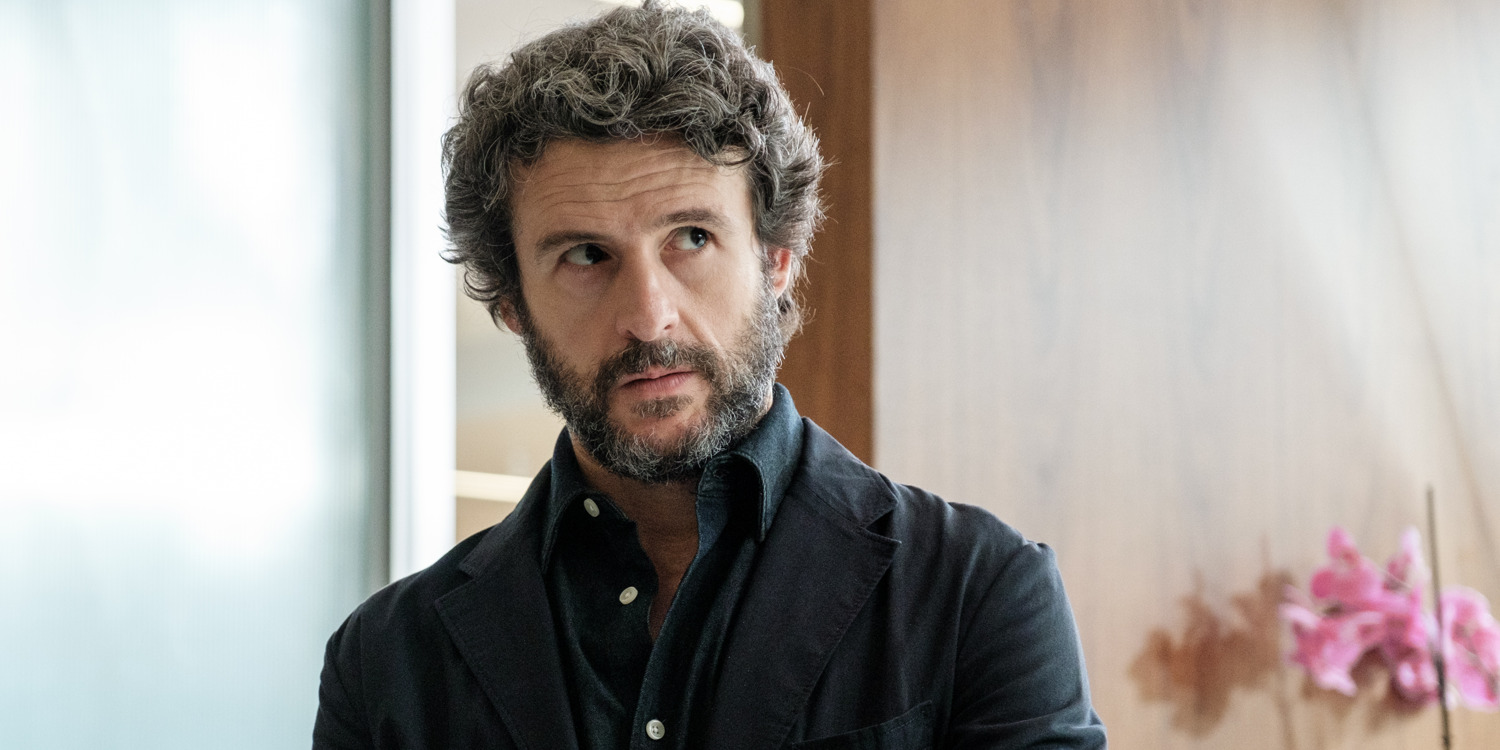Originally titled ‘Legardo,’ Netflix’s ‘Rotten Legacy’ presents a family drama show ripe with fluctuating loyalties, blood-bound betrayals, and an underlying conspiracy that threatens to take down an entire empire. The story centers around Federico Seligman, a journalist who built Spain’s biggest newspaper publication from the ground up. However, as he’s forced into an early retirement due to health complications, his kids end up taking over the company’s helm. Only, all three of his children, Andres, Yolanda, and Guadalupe, are entangled in the corruption of the system for their own benefit.
As a result, to cleanse his family’s name and punish his kids’ unethical ways, Federico records an interview in which he leaves no stone unturned about the family and the newspaper’s secrets. Yet, many people are eager to take those secrets to the grave, which puts the Seligman family in a uniquely dangerous predicament. The Spanish show explores complicated family dynamics that are wrapped in tense conspiracies. All the while, the narrative scrutinizes the idea of honest journalism and its exploitable responsibilities. Naturally, this paves the way for a story that maintains authentic and realistic themes.
Rotten Legacy is a Fictional Show About a Dysfunctional Family
‘Rotten Legacy’ presents a story that is full of numerous realistic narrative elements. These range from fleshed-out familial dynamics and the moralistic explorations of journalism to long-buried governmental secrets. Nonetheless, none of these storylines hold any tangible connections in reality. The show’s depiction of the Seligman family and its far-reaching drama remains a work of fiction penned by creators/co-writers Pablo Alén, Breixo Corral, and Carlos Montero. The project is a part of Carlos Montero’s El Desorden Crea production company’s efforts at bringing valuable stories to the screen. Montero has previously helmed various other Spanish shows, including ‘The Mess You Leave’ and ‘Elite,’ as well as the production company’s previous endeavors ‘In Love All Over Again’ and ‘Respira.’

Family dynamics, particularly the tense relationship between a parent and their kids, are at the center of this story’s narrative. As a result, much of the realism within the tale is mined from the nuanced relationships that persist between Federico and his children. Naturally, this brings up an unavoidable parallel between the show and Jesse Armstrong’s critically acclaimed show’ Succession.’ Both the Seligman family and the Roy family depict a potential for backstabbing and interpersonal betrayals in pursuit of their own success that remains comparable. Nonetheless, save for this point of similarity, the two shows operate on entirely different premises and themes.
While the conflict and competitiveness between the Seligman children and their father present a familiar premise, ‘Rotten Legacy’ is more concerned with highlighting the moralistic nature of these relationships. It consistently questions the obligations a father has to his wards in relation to their upbringing into ethical individuals, as well as unconditionally loved heirs to the family name and its advantages. Additionally, the narrative also delves into the socio-political world through the perspective of truth-seeking journalists, which adds another edge of realism to the tale.
Rotten Legacy Mirrors the Brutal Reality of the Spanish Press Through El Baltico
While there are no direct real-life inspirations equipped for the characters or events of ‘Rotten Legacy,’ the show manages to retain roots in reality through a realistic depiction of its central journalism storyline. In many ways, journalistic integrity and its exploitation are at the center of the Seligman family’s story. As a result, El Baltico and its run remain intrinsic to the story’s sense of realism. Although there are no publications of the same name off-screen, the nature of Federico’s newspaper and its narrative purpose remain relevant to reality.

In the show, Federico is a man of honor who believes in using El Baltico for truthful journalism. Yet, his own past is filled to the brim with shades of gray. This dichotomy is never more apparent than when he collaborates with bankers, politicians, and law enforcement individuals to achieve his goals through whatever means necessary. These long-fostered relationships speak to a corrupt exploitation of Federico’s journalistic role in times of convenience. In real life, there is similar corruption in the Spanish press. In 2019, David Jiménez, a war correspondent-turned editor-in-chief of one of the biggest publications, El Mundo, released his all-revealing book ‘El Director.’
In the non-fiction Spanish memoir, the author revealed the threads of connection that run between the Spanish media and influential individuals, including those with political power. The issues alleged in the book even sparked notable debates around the election year. Among other things, Jiménez asserts the potential for the press to be bribed by forces in power like corporate firms, sports teams, and even political parties. “We journalists love to tell a great story,” he writes in his book. “Just not ours.” Even though the author and his experiences aren’t equipped as references for Federico and his on-screen story, his reality provides a realistic context for El Baltico and its ethically perilous nature.
Read More: Rotten Legacy Ending Explained: How Did Bruno Die?


